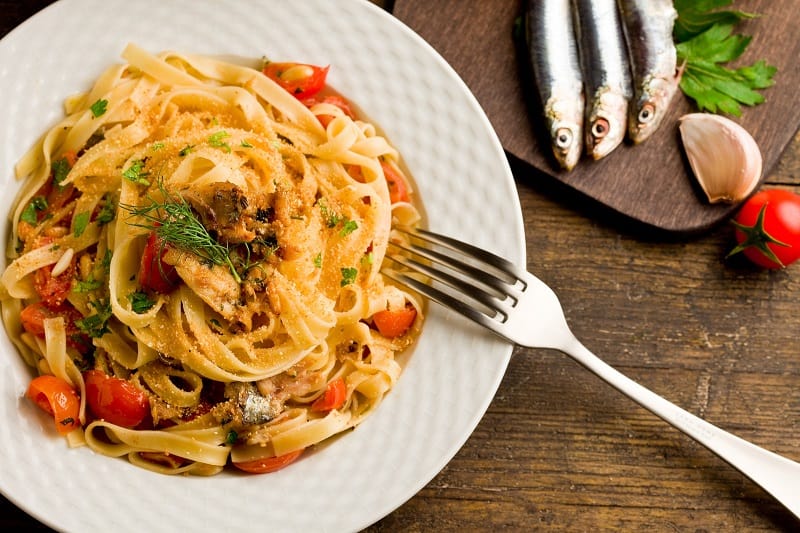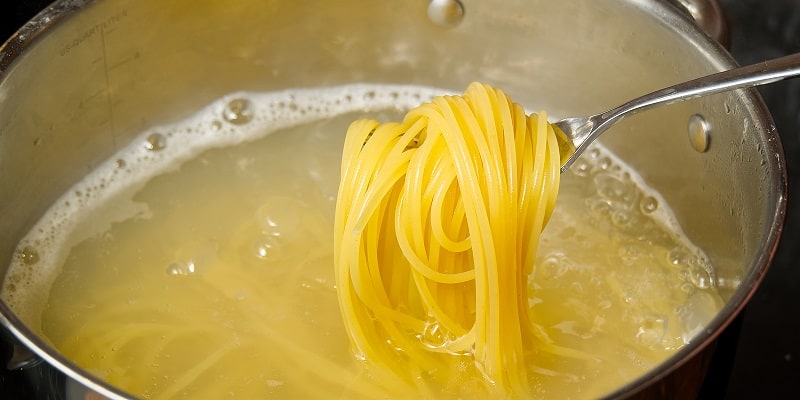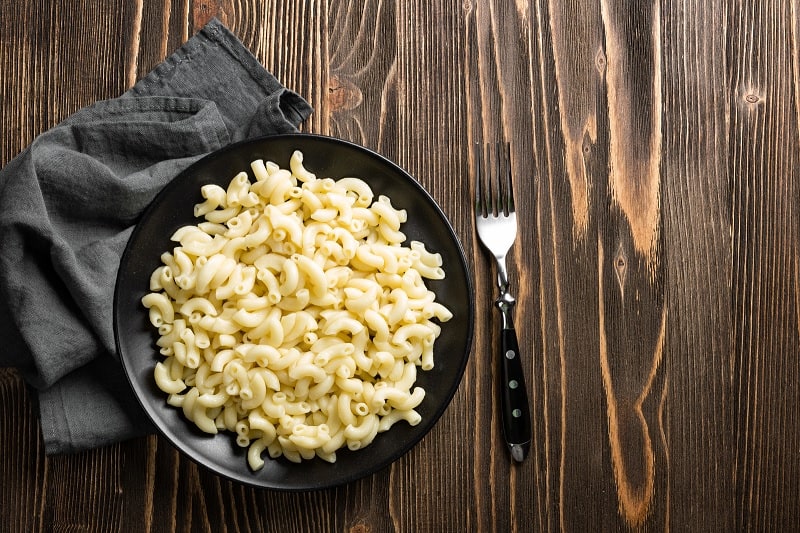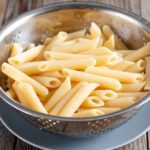Since the UK was introduced to pasta by Italy in the 13th century it has become one of the nation’s favourite foods.
68% of British people say that they eat pasta at least once a week and 42% of pasta eaters consume it several times a week.
The wide range of varieties, shapes and sizes available plus its versatility make pasta a good staple food that can be eaten hot or cold, with or without sauces, vegetables or meat.
It can be layered and baked, served as a side dish or a main dish. You can also eat it as a pasta salad or serve it at a buffet.
Why Does Pasta Stick?
To understand how to stop pasta sticking, we need to understand why pasta sticks together in the first place.
Pasta is made from a starch, and this starch covers the surface of the pasta. When the pasta is added to hot water, the outer starch gelatinises and becomes sticky to the touch.
If nothing is done to the pasta during cooking or after, then this sticky coating remains and will cause your pasta to stick together in clumps and stick to your saucepan.

How Do You Stop Your Cold Pasta Sticking Together in the Fridge?
If you are planning to make a cold pasta dish such as pasta salad, then you can stop the pasta sticking together by rinsing it with cold running water in a colander once it has cooked.
This removes the sticky layer of starch and stops the cooking process so that the pasta no longer gets softer.
If you do this until the pasta is cold all the way through, then your pasta won’t stick together in the fridge.
Does Salt Stop Pasta Sticking?
There is a myth that says that salting your pasta water will help prevent the pasta from sticking together. This is untrue and there is no evidence that it makes even the slightest difference to the stickiness of the pasta.
However, salt does add flavour to your pasta and chefs always recommend salty water for cooking pasta dishes.
Another myth is that a drizzle of oil will stop pasta sticking, however this only coats the pasta and makes it slippery, meaning that the sauce won’t stick to the pasta.

Tips to Prevent Pasta from Sticking
There are many ways to prevent your pasta from sticking. Which method you choose may depend on the type of dish you are cooking or the type of pasta you are using.
- Don’t overcook your pasta – Pasta is best eaten al dente, meaning with a bite to it. The longer pasta is cooked, the softer it gets and the stickier it becomes. Each pasta variety and brand will have varying cooking times so be sure to read the packet carefully.
- Use strongly boiling water – Adding pasta to boiling water cools the temperature of the water. This then extends the cooking time. If you make sure your water is boiling heavily when you add the pasta you can mitigate any increase to the cooking time and therefore reduce stickiness.
- Add the pasta to the sauce immediately – One very simple way of preventing your pasta from sticking is to add it into the sauce as soon as it is drained. Once the pasta is coated well in the sauce it will not stick together.
- Do not leave the pasta in the water or in the colander – It is best to have your meal additions ready before the pasta has finished cooking. This stops the pasta from continuing to cook while it is waiting to be used.
Both keeping the pasta in the colander drained or leaving it in the water will cause it to become sticky as it continues to release starch without anything to prevent it from sticking. - Stir your pasta – Stirring the pasta while it is cooking is a great way to stop it from sticking and clumping together. It is recommended that stirring as often as every 30 seconds will give the best non-stick result.
- Use enough water in your pan – Starch comes out from the pasta during cooking and so if your saucepan has a lot of water in it then the starch concentration will be lower and your pasta therefore less sticky
- Rinse pasta for cold dishes – Follow the advice above and rinse the pasta in cold water straight after draining.

Chef’s Pick is your guide to the best kitchen equipment and appliances in the UK.
We help you understand the confusing world of cookers, ovens and cookware so you can get the most out of your kitchen.



